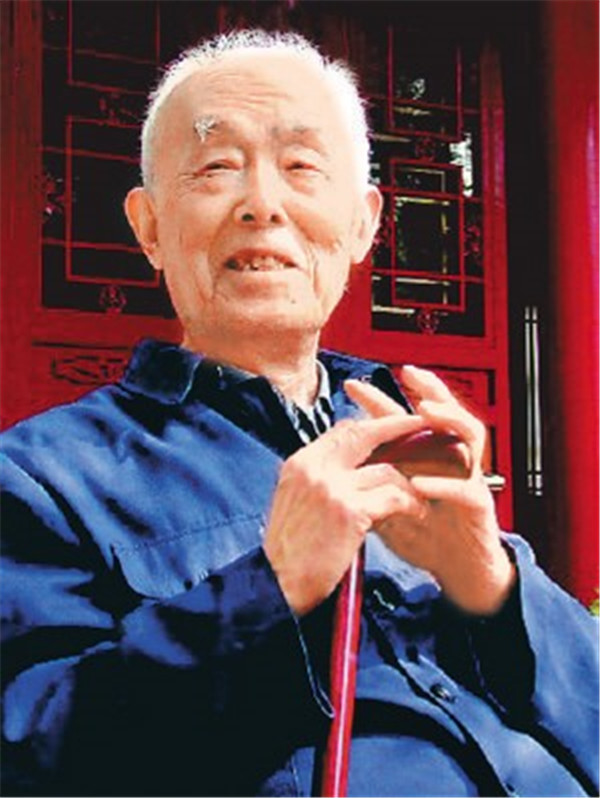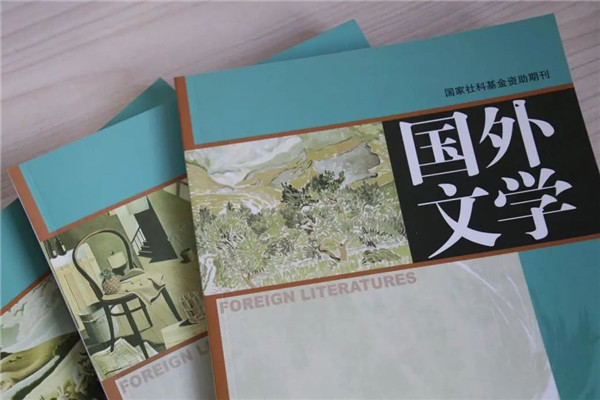Peking University, February 15, 2021: Liu Feng was only a young teacher in the Department of English at Peking University when he was recommended to be the editorial director of Foreign Literatures (《国外文学》) in the early 1990s. He took the initiative and went to the dormitory of the first editor-in-chief Ji Xianlin to introduce himself. Ji was a renowned erudite and founder of the previous PKU Department of Eastern Languages, and he also served as the first editor-in-chief of Foreign Literatures after its first publications in 1981. The non-profit peer-reviewed academic journal was formed by teachers across several departments of foreign languages which later became the School of Foreign Languages. Although Ji was in his 90s, he still cared passionately about the journal. Ji’s door was always open for editors to consult him about any matters concerning Foreign Literatures.
However, when Liu arrived at Ji’s door, nobody answered. Having returned to the PKU campus, Liu happened to come across Ji at Weiming Lake as Ji was leaving the library for home. Liu caught up with him and was invited to Ji’s dormitory to discuss the future of Foreign Literatures.
Years later, Liu learned that Ji was at that time working on A History of Sugar (《糖史》), a monograph published posthumously in 2009 which studies human cultural communication through a survey into the history of sugar. Ji often frequented the Peking University Library to do research for his book.

Ji Xianlin, master of Eastern languages and cultures
“Ji is such a painstaking and conscientious person, who is always warm and gentle towards younger generations,” Liu recollected. “Like other senior members of the first editorial board, our teachers and our predecessors influenced us a lot, both in terms of academic studies and personality, and we tried to preserve their spirits in our journal.”
Liu is the current editor-in-chief and he is leading the third editorial board. In addition to Liu himself, the editorial board now consists of an executive editor and five editors. Foreign Literatures publishes quarterly with about 60 articles a year, each with a volume of around 10,000 Chinese characters. With its influence growing, Foreign Literatures is ranked as one of the top academic journals about foreign literatures by three major journal evaluation systems in China, namely, A Guide to the Core Journals of China conducted by Peking University, the Chinese Social Sciences Citation Index (CSSCI) from the China Social Sciences Research Center of Nanjing University, and the AMI journal list from Chinese Academy of Social Sciences Evaluation Studies (CASSES).


The current editorial office of Foreign Literatures in the Foreign Languages Building, Peking University
Liu said that during these years he worked for the journal, he witnessed an increasing professionalization of Chinese scholars and the establishment of a mature academic system in China. “Previous generations of Chinese scholars write out of an urge to express themselves, while today we have a reserve of well-trained scholars who are familiar with the universal academic standards,” Liu said.
Though new literary works and theories keep emerging, Foreign Literatures sticks to its taste for literary classics as it was. The journal mainly discusses literary theories, significant authors and works, the history of literature, and literary phenomena in ancient times and the 17-19th century. It also provides readers with the latest academic progress in classic literature studies. As most of the journal contributors are Chinese, Foreign Literatures shows Chinese perspectives in interpreting foreign literary works and society.
“We have never chased what’s fashionable,” Liu said. “We always focus on classics.” He believes scholars can always find something new and inspiring from literary classics, as long as scholars develop distinctive perspectives to read them. “Literature concerns every corner of human life. A scholar who delves into the texts closely based on years of professional training and extensive reading can always learn from literary classics and consequently produced good papers,” Liu said. For Chinese scholars, their immersion in Chinese culture must contribute to their studies in foreign literatures, which can be seen in their choice of topics and way of thinking.

Foreign Literatures
Considering the future of the beloved journal, Liu said that the current editors will preserve the traditions inherited from Ji and other predecessors, while perhaps some changes will be made to the layout of the journal.
“As more and more professionals concentrate on literary studies, we can improve the quality of the journal, and continue to make new discoveries in foreign literary classics,” Liu said.